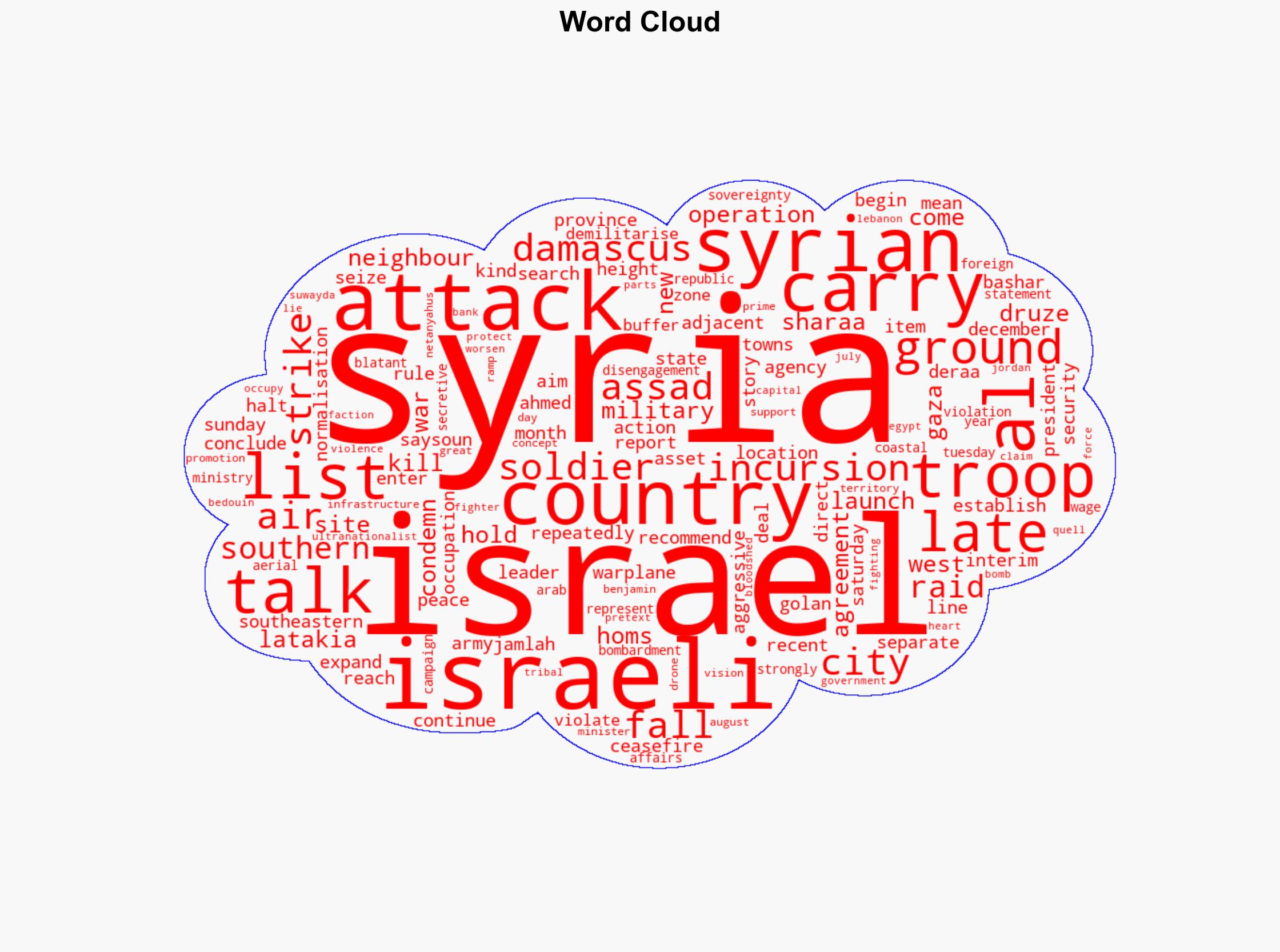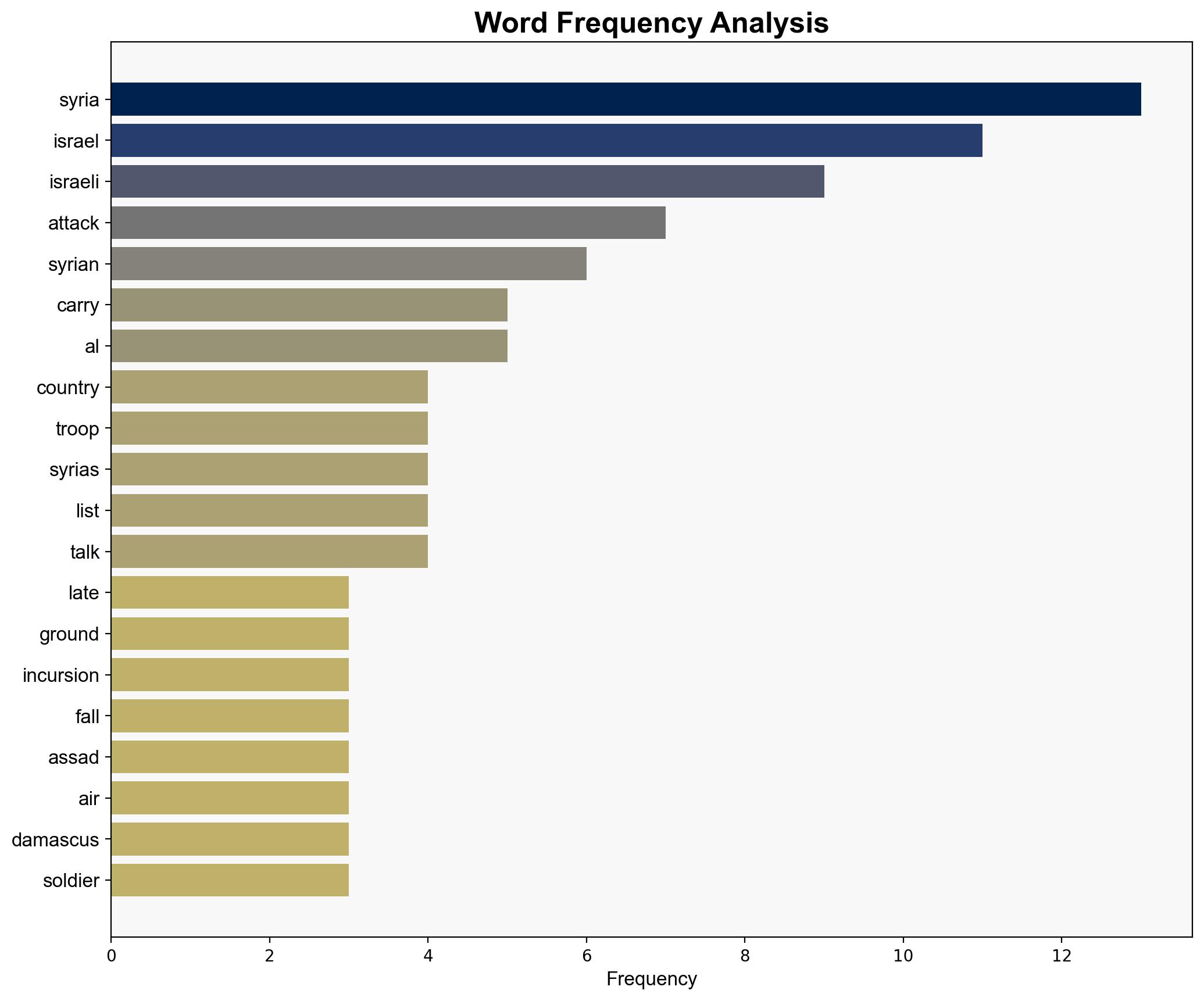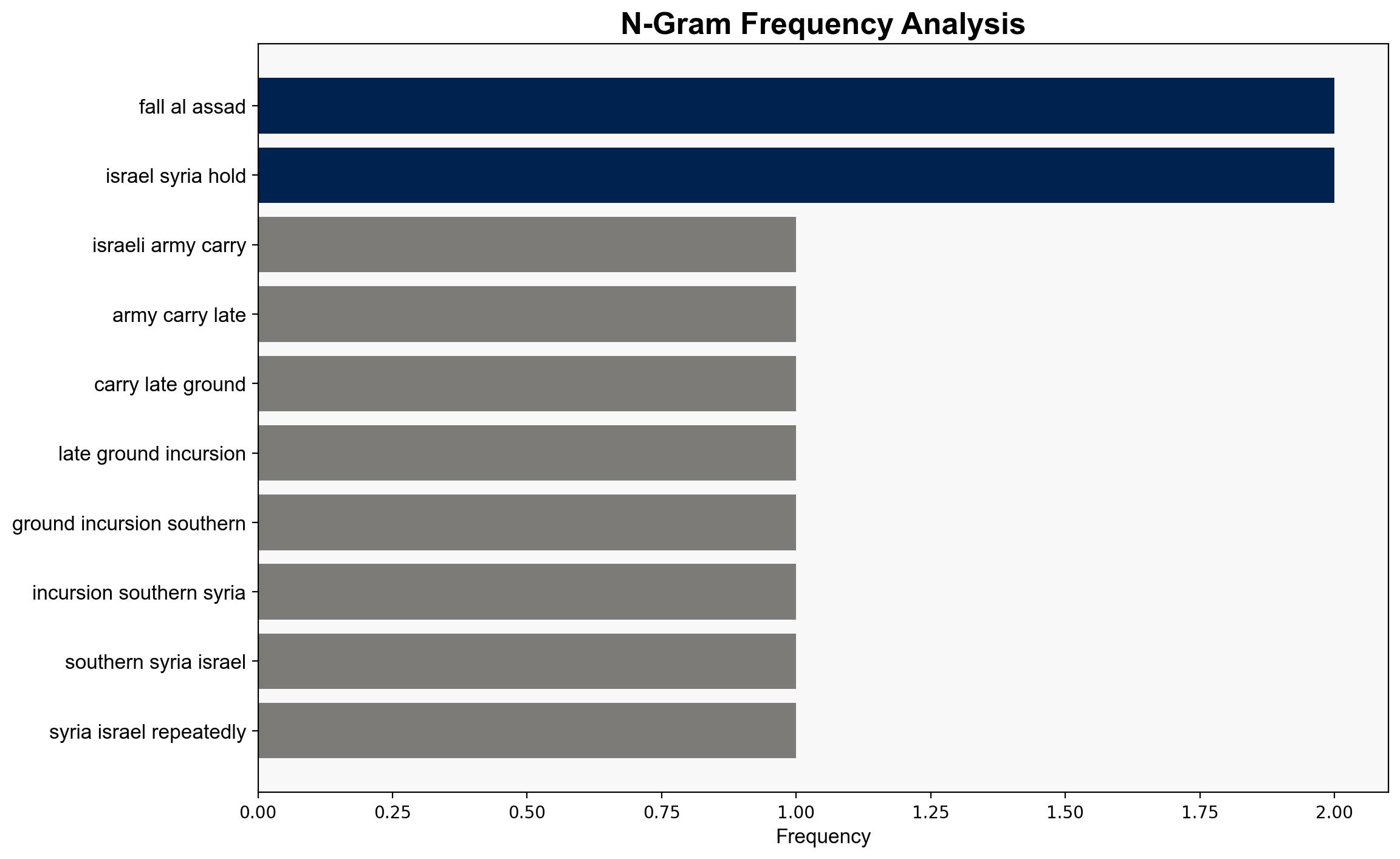Israeli army carries out its latest ground incursion in southern Syria – Al Jazeera English
Published on: 2025-09-14
Intelligence Report: Israeli Army Carries Out Its Latest Ground Incursion in Southern Syria – Al Jazeera English
1. BLUF (Bottom Line Up Front)
The Israeli army’s recent ground incursion into southern Syria likely aims to counter perceived threats from Iranian-backed forces and secure strategic military advantages. The most supported hypothesis is that Israel is acting to preemptively neutralize threats and maintain regional dominance. Confidence level: Moderate. Recommended action: Monitor developments closely and engage in diplomatic efforts to de-escalate tensions.
2. Competing Hypotheses
1. **Hypothesis A**: Israel’s incursion is primarily a defensive measure aimed at neutralizing Iranian-backed forces and preventing the establishment of a hostile military presence near its borders.
2. **Hypothesis B**: The incursion is part of a broader strategic initiative to expand territorial control and influence in the region, potentially linked to the concept of a “Greater Israel.”
Using the Analysis of Competing Hypotheses (ACH) technique, Hypothesis A is better supported by the pattern of Israeli military actions, which often target Iranian and Hezbollah positions. Hypothesis B, while plausible, lacks direct evidence of territorial ambitions in the current context.
3. Key Assumptions and Red Flags
– **Assumptions**: It is assumed that Israel perceives a significant threat from Iranian forces in Syria. Another assumption is that Israel’s actions are not coordinated with broader international efforts to stabilize Syria.
– **Red Flags**: The lack of direct evidence linking the incursion to territorial expansion raises questions. Inconsistent reporting on the scale and objectives of the incursion could indicate information manipulation or gaps.
4. Implications and Strategic Risks
The incursion could escalate tensions between Israel and Syria, potentially drawing in Iranian and Hezbollah forces, leading to broader regional conflict. There is a risk of retaliatory actions against Israeli interests globally. Economically, prolonged conflict could disrupt regional trade routes and energy supplies. Geopolitically, this could strain Israel’s relations with neighboring countries and complicate peace efforts.
5. Recommendations and Outlook
- Engage in diplomatic dialogues with regional stakeholders to de-escalate tensions.
- Enhance intelligence-sharing with allies to monitor Iranian and Hezbollah activities in Syria.
- Scenario-based projections:
- Best: Diplomatic resolution leads to de-escalation and stabilization.
- Worst: Escalation into a broader regional conflict involving multiple state and non-state actors.
- Most Likely: Continued low-intensity conflict with periodic escalations.
6. Key Individuals and Entities
– Benjamin Netanyahu: Israeli Prime Minister, promoting the “Greater Israel” concept.
– Ahmed al-Sharaa: Syria’s interim president, involved in talks with Israel.
7. Thematic Tags
national security threats, regional focus, military strategy, geopolitical tensions





